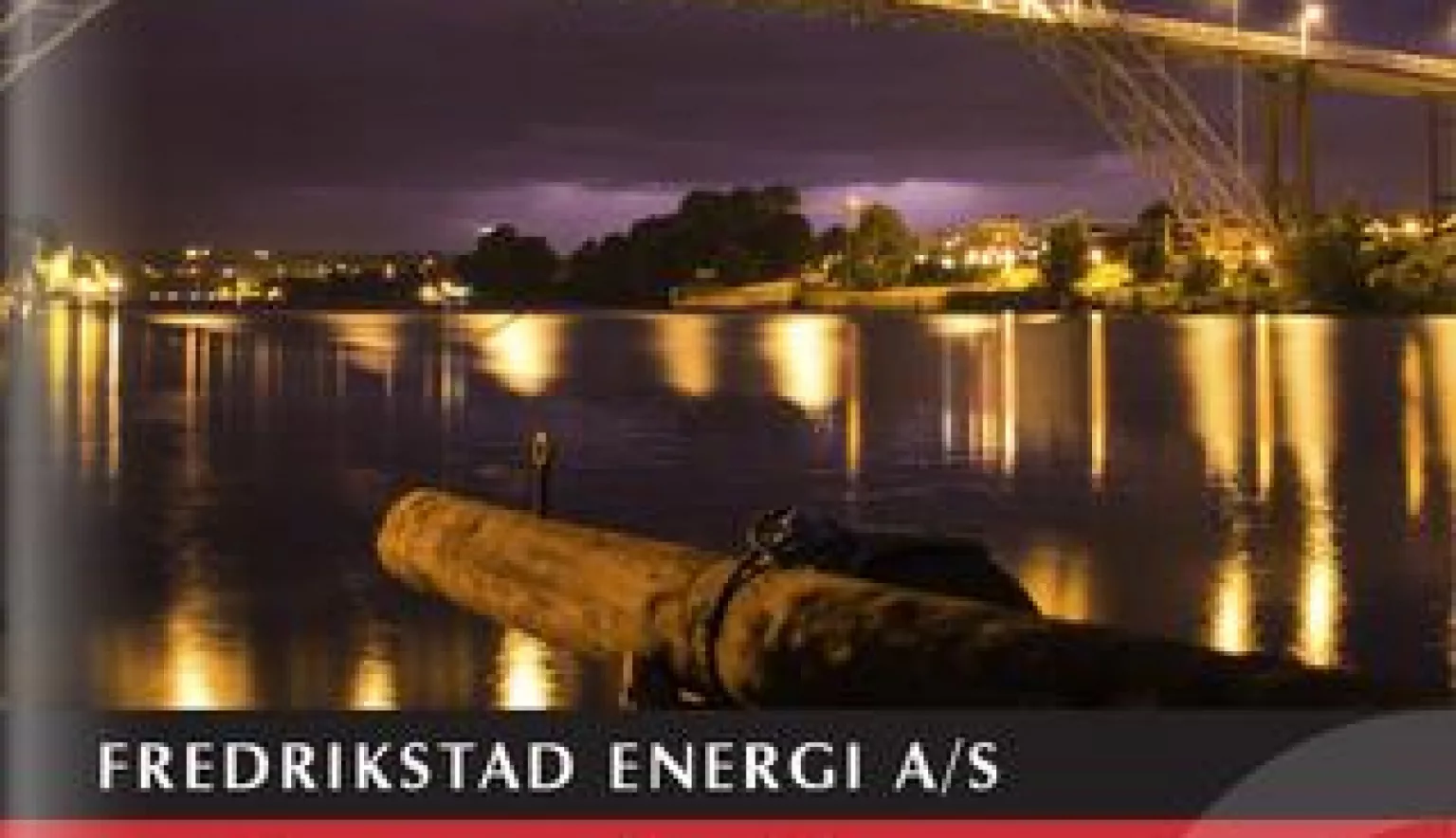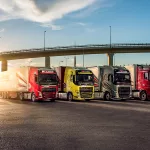Fredrikstad Energi has more than a century of experience to fall back on as it continues to evolve Norway’s position in power.
ALWAYS ONE STEP AHEAD
Fredrikstad Energi has been one of the leading lights in Norway’s energy evolution for more than a century and remains as driven as ever to capitalise on the latest trends and technological breakthroughs to develop both the business, and the wider country, to new levels of eco sustainability.
The Norwegian power company operates out of Hvaler and Fredrikstad; the latter municipality claiming a 51 percent stake in the company alongside Fortum who own the remaining 49 percent. Since 1986, Fredrikstad Energi has stayed one step ahead of the sector under different names and guises, growing as a consequence of acquisitions and business ventures to culminate in being one of the most industry-significant businesses in Scandinavia.
The business model which has proved so successful over the years now results in the Group owning companies within networks spread across several locations in the country. The three main divisions comprise Fredrikstad Energi itself, its distribution subsidiary, Nett and the recently acquired MAIK which has formed the crux of its recent developments.
Complemented by a series of acquisitions of privatised power grid operators and power distribution companies including Energi 1, Røyken Energiverk, Askøy Energi, and Hvaler kommunale elverk, the Company is now in as strong a position as it has ever been, but can attribute the rise to prominence to a journey which began in the 1800s.
“Fredrikstad Energi has a long and rich history that spans more than 100 years. The first light bulb in Norway was lit at Lisleby Bruk in 1877. A couple years later, not far from Lisleby Bruk, Fredrikstad Energi started its story. The Group has been present in the Fredrikstad region for more than 100 years, and over the years various events of different magnitude have helped shape Fredrikstad Energi to the business it is today,” the Company recalls.
“The forerunner to Fredrikstad Energi AS, Fredrikstad Gas & Electricitetsværk, was constituted and began operations in 1896.”
MAIK
Fast-forward to the turn of the current century and Fredrikstad Energi’s influence was turned up another notch, incorporating an initial rebranding and period of acquisition from 2002, leading into major changes occurring between 2003 and 2006.
The Company adds: “Several businesses discontinued and/or merged into larger units. One of the most significant changes was organising all Fredrisktad Energi subsidiaries concerning assembly and installation into one unit, Nettpartner, in 2006.
“During the same period, all service functions, with the exception of real estate-owned properties, were gathered under the subsidiary, MAIK AS.”
A further rebranding in 2013 completed the cycle of development, introducing not only a new logo, website and purchasing of an electrical vehicle within Fredrikstad Energi, but a similar overhaul of its key MAIK subsidiary.
Using AMS – smart metering technologies – MAIK develops, conducts and evaluates requests for installation and equipment, acting as a turnkey solution across the entire project; from administrative facets to the core operations ensuring optimisation of power usage.
“The measures department aims to ensure efficient collection of meter readings and quality control of these. This can be from different energy sources such as electricity, water, gas and district heating. In the value chain, collection includes the following activities: automatic collection of concentrators; validation and control of the collection result; reporting discrepancies; transmission of measurement values to customers,” the Company explains. “MAIK can take responsibility for an AMS project or we can offer one specific service to a customer.
“Our concept is based on the customer choosing how much they want to do and how much they want us as a supplier to do.”
This extensive experience coupled with high levels of flexibility to suit the customers’ needs has led, via its customers, to carrying out meter data management for 102,000 end customers, providing significant economies of scale and setting its stall for future collaborations and evolution.
SUBSIDIARIES NETWORK
The acquisition of MAIK has been pivotal to Fredrikstad Energi’s growth in recent years, being able to address all grid operations and industry operators via the subsidiary.
Being able to provide customisable services to varying customers and industries, all in search of more efficient power generation, has been further compounded by the Company’s array of complimentary subsidiaries all in place to provide electricity to private customers and businesses throughout Norway.
The Company continues: “Today, we serve a distribution network of more than 90,000 customers, with sales of electricity coming through companies; Askøy Energy power sales, Follo Energy and e20.
“Askøy Energi Kraft Sales offers favorable power contracts for private customers and businesses with power consumption billed in arrears. For customers of Askøy, we have shared billing with the network company, Askøy Energi.
“Follo Energy supplies cheap electricity to individuals and businesses where we provide tailored electricity agreements and deal with Energi 1 Follo/Røyken AS on joint billings of electricity and network tariffs.”
The final subsidiary, e20 has just one goal; to limit the amount of power used to as little as possible, in an attempt to not only save customers money, but to play a key role in the preservation of the environment.
ENVIRONMENTAL RESPONSIBILITY
As a certified Eco-Lighthouse, Fredrikstad Energi’s devotion to environmental concerns is paramount, with the process in attaining Eco-Lighthouse accreditation indicative enough of the trend’s importance.
“Eco-Lighthouse is Norway’s most widely used certification scheme for enterprises seeking to document their environmental efforts and demonstrate social responsibility,” the business explains. “Being an Eco-Lighthouse means taking environmental responsibility on a daily basis. To meet industry requirements for certification we have implemented a more environmentally friendly operation and focus on a good working environment.
“Enterprises wanting to become an Eco-Lighthouse undergo a certification process lasting between three and six months. In collaboration with an authorised Eco-Lighthouse consultant, the enterprise establishes an internal environmental group and completes an internal environmental analysis.”
Addressing Fredrikstad Energi’s impact in areas of energy, waste, transport, procurement and the work environment, the Company’s attainment of the certification has put it in a prime position to leverage its already thriving reputation and with the accreditation reviewed every three years, clients are assured that the Company’s commitment to the cause cannot afford to waiver in the future.
DRIVING DEVELOPMENT
Decisions to participate in initiatives such as Eco-Lighthouse are made by Fredrikstad Energi’s parent company who also ensure that synergies are achieved between the various activities of the Group’s overall operations; incorporating internal procedures such as HR, IT and finance.
This, in turn, promotes a more positive external image, which has similarly been enhanced by the Company’s involvement in numerous corporate social responsibility (CSR) activities. Its ‘Heroes for Tomorrow’ and ‘Tall Ship Races’ involvement in Norway highlights the Company’s philosophy to enrich the wider Norwegian population, while its continuous drive to raise power consumption awareness is epitomised by its ‘Stream Today 2015’ initiative.
Ongoing education and marketing will help ensure this level of understanding in Norway continues to grow, while the Company itself also plans the next stage of its own progression.
“The business has more acquisitions planned for this year and is also planning on increasing staff levels across its grids,” it states. “Through involvement in projects like Smart Energy Whales, Devid, various R&D projects and cooperation with Esmart Systems, Fredrikstad Energi is attempting to have a proactive relationship with technology and customers’ behaviours. This means we’re always in a position to seize business opportunities that arise.”
Fredrikstad Energi concludes: “The future is exciting. As a society, we are facing many challenges associated with managing the growing number of power-consuming electrical appliances and equipment. The number of electric vehicles is increasing, induction-powered stove tops are becoming more widespread and much of society’s awareness of power means that we replace installations that use electricity for a long time, to appliances that are energy efficient, but power consuming. This requires prudent investments in our infrastructure.
“There are new challenges and opportunities being created in our industry in the next transition period to 2019 which will see AMS meters replace conventional electricity meters. The possibilities here lie in finding how we can leverage off this technology to better equip the infrastructure, plan investments and develop services related to smart grid technology.
“We are always a step ahead making sure we are well positioned to help drive this development forward.”




















